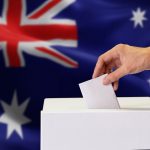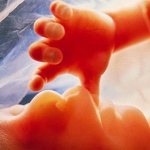State elections will be held in Queensland this Saturday, October 31st, with life and family issues firmly at the forefront of many voters’ minds. FLI has been exposing successive ALP governments’ perverse love of abortion for twenty-five years[1] and this election particularly highlights the issue.
It was the current Labor government under Premier Annastacia Palaszczuk that legalised abortion to birth in 2018. Palaszczuk’s former Deputy, Jackie Trad, had campaigned for almost thirty years to see abortion legalised in the state. By a strange coincidence, thirty years is the length of time it took former Victorian Premier Joan Kirner to achieve legal abortion in that state.
The 2018 Queensland law closely resembled those that already existed in Victoria and Tasmania. It made abortion legal on demand to 22 weeks gestation and available to full term with approval from two doctors – not a great obstacle as one can be the doctor performing the abortion. Exclusion zones of 150m were introduced and doctors lost their right to conscientiously object to referring abortion-minded women to another doctor.
Unsurprisingly, the Greens have found a way to make this extreme abortion law even more draconian, pledging to make all Queensland’s private hospitals – even those that are currently Catholic and Christian – become public, thus forcing them to provide abortions. The Greens also want taxpayers to completely fund every abortion in the state.[2]
Voters expecting the LNP to save Queensland’s babies might be bitterly disappointed. When the open-slather abortion bill was passed, it did so with support from three LNP members – a reminder that not all members of this formerly conservative coalition can be counted on when it comes to important moral issues. Just last month the LNP also offered its support to a law forcing priests to break the seal of confession in cases of known or suspected child abuse.
This drift to the Left by conservatives is not limited to Queensland, of course. Despite any opposition they might display during a law reform campaign, experience has shown that once abortion is legalised, subsequent Liberal governments tend not to roll back those laws. In New South Wales, abortion was last year legalised with the complicity of the Liberal Premier and Health Minister; an attempt at pressuring the Premier from three pro-life politicians was withdrawn before it had any tangible effect.
Consistent with this phenomenon, the current Opposition Leader in Queensland, Deb Frecklington, has indicated that changing abortion law would be; “not a priority” in the event of a win for her party, although a party spokesman has said interest in making the law “less extreme” particularly around reducing gestational limits, trying to limit abortion coercion and mandating counselling.[3] The LNP moved amendments in these areas when the bill was being debated, but were unsuccessful in having them taken up. It is to be assumed that pro-life LNP MPs, like Mark Robinson, will take up the challenge and continue to push for changes to the abortion law.
By contrast, Pauline Hansen’s One Nation party announced in August that it is absolutely committed to rolling back Queensland’s abortion law. One Nation has identified six areas of the current abortion law that it will change, including banning sex-selective abortion, ensuring that babies born alive after a failed abortion are given medical care and banning late-term abortions.[4]
Similarly, the Katter Australia Party identifies as pro-life. KAP leader, Robbie Katter said in July, “We are of the belief that life is given and taken by God. We simply do not have the right to take the life of the unborn child.”[5]
Thankfully, these two parties, in addition to any DLP candidates who may be running give voters in many electorates the opportunity to vote for life.
While legal abortion may in one sense be settled in Queensland for now, the ALP has just relaunched another fundamental attack on life – assisted suicide.
Annastacia Palaszczuk surprised many at her party’s campaign launch, announcing that her government planned to accelerate the introduction of euthanasia into the State. Premier Palaszczuk had set the Queensland Law Reform Commission with the task of drafting assisted suicide legislation in May of this year, stating at the time that reforming the law required “careful further consideration.”[6] The QRLC was originally meant to present a draft bill to Parliament by March 2021 and had apparently been unaware that Palaszczuk was planning to fast-track the legislation.
In her announcement, Palaszczuk said that, if elected, Labor would work to introduce assisted suicide to the state by February next year. The Premier also said that she would allow her party a conscience vote when the time comes.
Using the kind of language we are used to hearing in abortion debates, Premier Palaszczuk referred in an interview to “choice” and “dignity”, saying that euthanasia is “a very personal decision, between an individual and the medical practitioners.”[7]
Townsville’s Bishop Tim Harris expressed his dismay at the Premier’s attempt to fast-track assisted suicide, reiterating the Church’s arguments against the practice:
“This is clearly a backflip on her commitment that she would wait for the report from the QLRC in March (next year) and I am deeply disturbed and disappointed by this clear election stunt. Something as significant as VAD needs to be thought carefully through, examined and that’s what I thought the Government was going to do – in fact she talked about getting it right – well I don’t think she’s got it right….
“…Our view is that we are pro-life from the beginning to the end and it means accompanying people along the way. So we don’t put down anybody.
“Human beings are created in the likeness of God and that’s how we should treat them.”[8]
As Branka van der Linden of HOPE (Preventing Euthanasia and Assisted Suicide) writes on her website, although prolifers don’t wish to see euthanasia legalised in any form, drafting of this kind of legislation should not be rushed and “is a task that requires the utmost care and attention. Or at least it does when it’s not an election year.”[9]
The issue of euthanasia could be critical for the Palaszczuk government in the event that Labor fails to gain a majority. Head of the minor Katter Australia Party, Robbie Katter, has indicated that he would hesitate to form government with Labor on the basis of its proposed assisted dying legislation and that his party would not support the upcoming euthanasia Bill.
There is no clear stance from the LNP when it comes to legalising euthanasia. LNP leader, Deb Frecklington has not made a public statement on her own position, but many members are openly pro-life from conception to natural death. Like Premier Palasczcuk, Frecklington has promised her party a conscience vote on assisted dying when it again comes before Parliament.
Opponents of assisted suicide point to the situation in Victoria, where the practice was legalised in June 2019. At the time, Premier Daniel Andrews said he expected around a dozen patients to apply for end-of-life drugs in the first year. But in fact, more than 120 patients ended their lives in that time – ten times the authorities’ initial estimate, with another 120 people applying for permits.[10] The current pandemic has increased the anxiety of terminal patients and at the height of the first wave of coronavirus, one Melbourne doctor received four calls a week from patients wanting to secure end-of-life drugs.[11]
So while it is unclear exactly how much support for life will be forthcoming from the LNP, Labor’s philosophy is very plain to see: if the Culture of Death was a politicial party, in Australia, that party would be Labor – with a lot of help from the population-controlling Greens.
Coupled with their own version of the gender-bending “Safe Schools” program, Labor has forfeited the right to being voted for by Catholics, non-Catholic Christians and other traditionally-minded Queenslanders. But gone are the days when it can be assumed that every LNP candidate is conservative, Christian and pro-life. Queensland’s voters must be prepared to put Labor last this Saturday and to evaluate other nominations on their pro-life status.
[HOPE has also compiled a list of all Queensland candidates with their views on assisted suicide and euthanasia. Although not all candidates have replied to enquiries from HOPE, the list is constantly updated.[12]]









